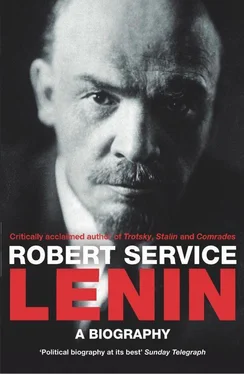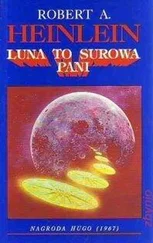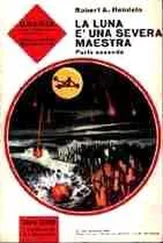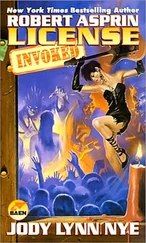Indeed, according to Anna Ilinichna, she learned of the Jewish background of Dr Blank only in 1897, when she was thirty-three. This occurred in the course of a journey to Switzerland. Anna Ilinichna used her mother’s surname on foreign trips 38and the Swiss students she met asked her whether she was Jewish. She was surprised to hear that nearly all the Swiss Blanks were Jews. Anna Ilinichna made enquiries, presumably of her mother, and learned that their grandfather Dr Blank was of Jewish origin. Many years later, indeed after Lenin’s death, Anna Ilinichna also learned from a friend that a silver goblet that had once been owned by Dr Blank’s parents was of a type used in Jewish religious feasts. 39Neither Anna nor her siblings were disconcerted by their discovery. But they did not advertise it either. They already knew that their ancestry was not wholly Russian, and perhaps they added the Jewish ingredient to the existing list. It may be that a degree of caution was also at work. Anti-semitism was widespread in the Russian Empire, and the young Ulyanovs may have seen no reason to expose themselves to unnecessary trouble in society.
Yet Lenin, in later life, saw advantage in a cultural admixture having being made to their Russian heritage. He regarded Jews as a specially gifted ‘race’ (or plemya as he put it in the Russian fashion that was then conventional), and he took pride in the Jewish ingredient in his ancestry. As he remarked to his sister Anna, Jewish activists constituted about half the number of revolutionaries in the southern regions of the Russian Empire. According to the novelist Maxim Gorki, Lenin compared the Russians unfavourably with Jews: ‘I feel sorry for those persons who are intelligent. We don’t have many intelligent persons. We are a predominantly talented people, but we have a lazy mentality. A bright Russian is almost always a Jew or a person with an admixture of Jewish blood.’ 40Nevertheless this was not a matter at the forefront of his attention. He may even have been unaware of it until Anna Ilinichna started to make her enquiries. Lenin primarily thought of himself as a Russian.
In fact it was less the Jewish than the Germanic aspect of Lenin’s mother’s background that continued to have an influence on the family. Maria Alexandrovna worshipped at the local Lutheran church while her husband attended Orthodox services just as she liked to celebrate Christmas in the German manner by having a fir tree in the house; 41and Lenin was to mark the season in the same manner whenever he and his wife had children among their guests.
German seasonal customs were not the only lingering element in the family’s ethnic ancestry. There was also the strong impetus of German and Jewish culture towards education and public achievement. The Blanks had this aplenty; and Ilya Ulyanov, coming from a non-Russian background and aspiring to a high career in the Russian Empire, reinforced the impetus: he knew that he would succeed on his merits and his qualifications or not at all. Maria and Ilya were alike in seeking fair treatment for those subjects of the Russian Empire who were not Russian. In this they differed from those many people of non-Russian descent who acquired a pronounced antipathy towards non-Russians who would not assimilate themselves to a Russian national identity. Thus Ilya was determined that the non-Russians should receive education in their native language. He was a pragmatist as well as a man of principle. He knew how difficult it would otherwise be to induce the Chuvashes to send their children to his schools. And so he insisted that the Chuvash children in Simbirsk province should be taught not in Russian but in Chuvash. This sensitivity towards other national and ethnic groups was passed on to the Ulyanov children, and was something that exercised Lenin’s mind to the very end of his life.
And so the Ulyanovs were Russians of a particular type. They were new Russians in the sense that they were of diverse ethnic ancestry. But Russians they had become. Although Maria Alexandrovna showed traces of her German origins, she had by and large assimilated herself to a Russian identity. Ilya Nikolaevich, too, had put his past aside. Both Ilya and Maria had about them the ambition that is often found disproportionately among people making a career in the midst of a society with a different national majority. Living by the Volga among Russians, the Ulyanovs were a bit like first-generation immigrants. They had a terrific zeal to succeed, and this zeal was passed on to their progeny. Furthermore, they were selective about the aspects of Russian culture with which they identified themselves. ‘Old’ Russia – the Russia of peasants, village customs, drunkenness, ignorance, arbitrary rule, social deference and hereditary privilege – held no attraction for them. Ilya and Maria wanted to get rid of those age-old traditions. They associated themselves with modernity and wanted Russia to become more akin to the countries of the West. They were hoping for the reforms of the 1860s to transform society. The Ulyanovs were believers in Progress, Enlightenment, Order, Cleanliness, Obedience, Hierarchy and Punctiliousness.
They were therefore attracted to trends in contemporary Russia that emphasised contact with Europe. All ‘progressive’ people wanted to learn French and German. Like other nobles, the Ulyanovs sometimes slipped out of Russian into French; 42perhaps, in contrast with an earlier generation of such Russians, they merely wanted to communicate without the servants knowing what they were saying. But their linguistic capacity was nevertheless considerable. So, too, were their musical inclinations. Not every house in Simbirsk took an interest in the operas of Richard Wagner. 43The Ulyanovs, moreover, read about the latest European artistic, philosophical and scientific developments. Ilya and Maria Ulyanov were ‘cultured’ Russians; they were patriots. They wanted to build a ‘modern’, ‘European’, ‘Western’ and ‘enlightened’ society. Lenin was the son of his parents.
2. CHILDHOOD IN SIMBIRSK
1870–1885
So what kind of child was Volodya? Until recently there was too little information for anyone to be confident of the answer. It was not that memoirs did not exist. Quite the contrary: Volodya’s family left behind a copious record and his sisters Anna and Maria wrote incessantly about him. But only the material published within a year or two of his death in 1924 is frank about anything even mildly critical of him. Censorship was quickly at work in support of the Lenin cult and the memoirs were heavily edited by the central party leadership before appearing in print. Only now can we examine the original drafts. From this material a picture emerges of a little boy who was energetic, brilliant and charming but also bumptious and not always very kind.
Volodya’s sister Anna, six years his senior, recorded the impact he made as a baby: 1
He was the third child and very noisy – a great bawler with combative, happy little hazel eyes. He started to walk at almost the same time as his sister Olya [that is, Olga], who was a year and a half younger than he. She began to walk very early and without being noticed by those around her. Volodya, by contrast, learned to walk late; and if his sister tumbled inaudibly (or ‘shuffled over’, as their nanny put it) and raised herself up independently by pressing her hands down on the floor, he inevitably would bang his head and raise a desperate roar throughout the house.
The wooden structure of the house made it into an echo chamber and the floors and walls resounded as the little fellow went on crashing his head on to the carpet – or even on to the floorboards themselves. His mother Maria Alexandrovna wondered whether he might turn out to be mentally retarded. The midwife who had delivered him offered as her opinion: ‘He’ll turn out either very intelligent or else very stupid.’ At the time this was not very reassuring to Maria Alexandrovna, and later she remembered how fearful she had been about her little Volodya. 2
Читать дальше












